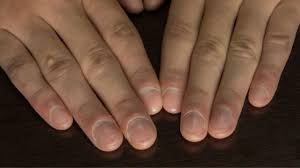Up to 20% of households across Europe experience catastrophic health spending – costs driven mainly by out-of-pocket payments for medicines – restricting people from paying for other basic needs such as food, housing and heating. This is according to data collected by WHO through UHC Watch, a new digital platform tracking progress on affordable access to health care in 45 countries and unveiled in full today in the run-up to Universal Health Coverage (UHC) Day.
UHC Watch is the first digital platform of its kind dedicated to tracking UHC indicators and health coverage policy in Europe and central Asia. Developed by WHO/Europe’s Barcelona Office for Health Systems Financing, the platform will support countries in the WHO European Region in accelerating their move towards UHC.
“The fact that up to 20% of households in some countries in Europe face catastrophic health spending is a stark reminder of the urgent need to prioritize universal health coverage,” said Dr Hans Henri P. Kluge, WHO Regional Director for Europe. “No one should have to choose between paying for life-saving medicines and meeting basic needs like food and housing. The new UHC Watch platform is a game-changer, empowering policy-makers with the evidence and analysis they need to ensure that health systems protect people from financial hardship and deliver equitable, affordable care for all.”
The new platform reveals that financial hardship caused by out-of-pocket payments for medicines, medical products (such as hearing aids) and dental care affects millions of people – even in Europe’s richest countries – further worsening their financial situation and even driving many into poverty.
The data also show that the poorest people are most likely to experience financial hardship. In most countries surveyed (28 out of 40), the incidence of catastrophic health spending has increased over time, with an average increase of 1.7 percentage points.
This heavy reliance on out-of-pocket payments within health systems not only causes financial hardship but also creates barriers to access, leading to unmet need for health care.
The launch of UHC Watch comes just before UHC Day, a time when WHO renews its calls for countries to strengthen their commitment to ensuring that everyone can access and avail themselves of quality health care when they need it without experiencing financial hardship.
UHC Watch aims to promote progress on UHC by providing policy-makers with easy access to up-to-date information on how well their health systems are performing and which policies promote or undermine financial protection. The platform meets this need by providing internationally comparable and country-specific data and policy analyses in one place.
Designed for policy-makers, policy analysts, academics, journalists and civil society advocacy groups, UHC Watch offers timely evidence, clear policy guidance and an intuitive interface.
“Health systems should protect people, not impoverish them. Yet, for millions across Europe and central Asia, the burden of out-of-pocket payments pushes families to the brink of poverty,” said Dr Natasha Azzopardi-Muscat, WHO/Europe’s Director of Country Health Policies and Systems. “UHC Watch is a critical step forward, equipping countries with actionable data and clear guidance to dismantle financial barriers to care. With this tool, we can accelerate progress towards UHC and ensure no one is left behind.”
All data on affordable access to health care in one place
Key features of UHC Watch include:
- a dynamic and easy-to-use interface, allowing people to customize their search for numbers and policy information, compare countries and download charts and data;
- country pages with data on key indicators, policy analysis and country-specific recommendations for strengthening financial protection;
- an indicator explorer with 40 country-level and comparative indicators on financial hardship linked to out-of-pocket payments, unmet need for health care and health spending;
- a policy explorer with up-to-date information for 45 countries on coverage policy (population coverage, service coverage, user charges, voluntary health insurance and changes in coverage policy); and
- a repository of more than 150 resources, including country-specific and comparative reports on health financing, multimedia files and news articles in several languages.
Maya Matthews, Head of Unit, State of Health, European Semester, Health Technology Assessment at the Directorate-General for Health and Food Safety (DG SANTE) said: “UHC Watch, built with the support of the EU4Health programme, is a very useful tool for monitoring trends and supporting policies that reduce unmet need and financial hardship. I hope it will be widely used by policy-makers across Europe”.
Marco Chiapusio, Programme Manager at the Directorate-General for European Neighbourhood Policy and Enlargement Negotiations (DG NEAR), added: “UHC Watch provides policy-makers with the data and analysis they need to move towards UHC. This is a key milestone in our commitment to strengthening health systems resilience in the western Balkans”.
Additional information
Catastrophic health spending occurs when the amount a household pays out of pocket exceeds 40% of its capacity to pay for health care. This may mean the household can no longer afford to meet other basic needs (food, housing and utilities).
UHC Watch benefits from European Union funding (EU4Health programme and Strengthening health systems resilience in the western Balkans, implemented with the partnership of WHO).
It is supported by the European Financial Protection Network, a group of more than 60 independent senior researchers convened by the WHO Barcelona Office for Health Systems Financing to systematically assess financial protection in over 40 countries.
Financial protection is central to UHC and a key dimension of health system performance assessment. It is an indicator of the Sustainable Development Goals, part of the European Pillar of Social Rights, and at the heart of the European Programme of Work, WHO/Europe’s strategic framework.
WHO/Europe monitors financial protection through the WHO Barcelona Office, using regional indicators that are sensitive to equity. The Office provides tailored technical assistance to countries to reduce financial hardship and unmet need by identifying and addressing gaps in health coverage.
About the WHO Barcelona Office for Health Systems Financing
The WHO Barcelona Office is a centre of excellence in health financing for UHC. It works with Member States in Europe and central Asia to promote evidence-informed policy-making. It also offers training courses in health financing.
The Office disseminates country-specific and internationally comparable data and policy analysis through UHC Watch, a digital platform tracking progress on affordable access to health care in Europe and central Asia.
Established in 1999, the Office is supported by the Government of the Autonomous Community of Catalonia, Spain. It is part of the Division of Country Health Policies and Systems of WHO/Europe.










